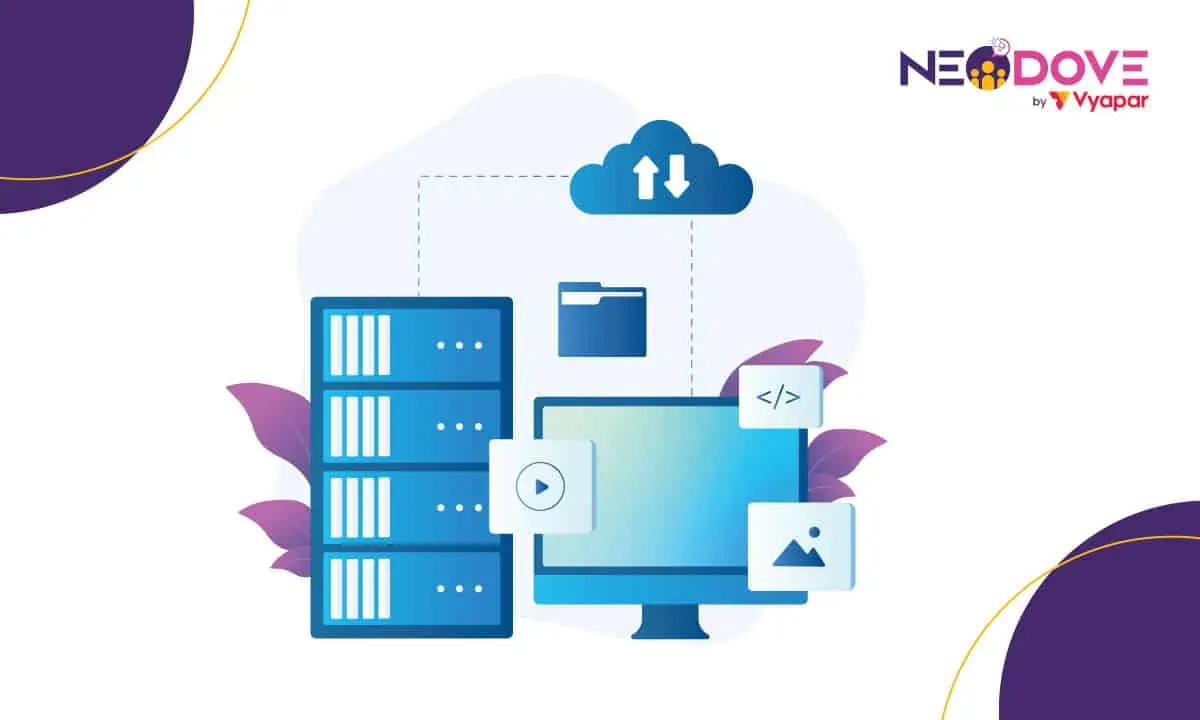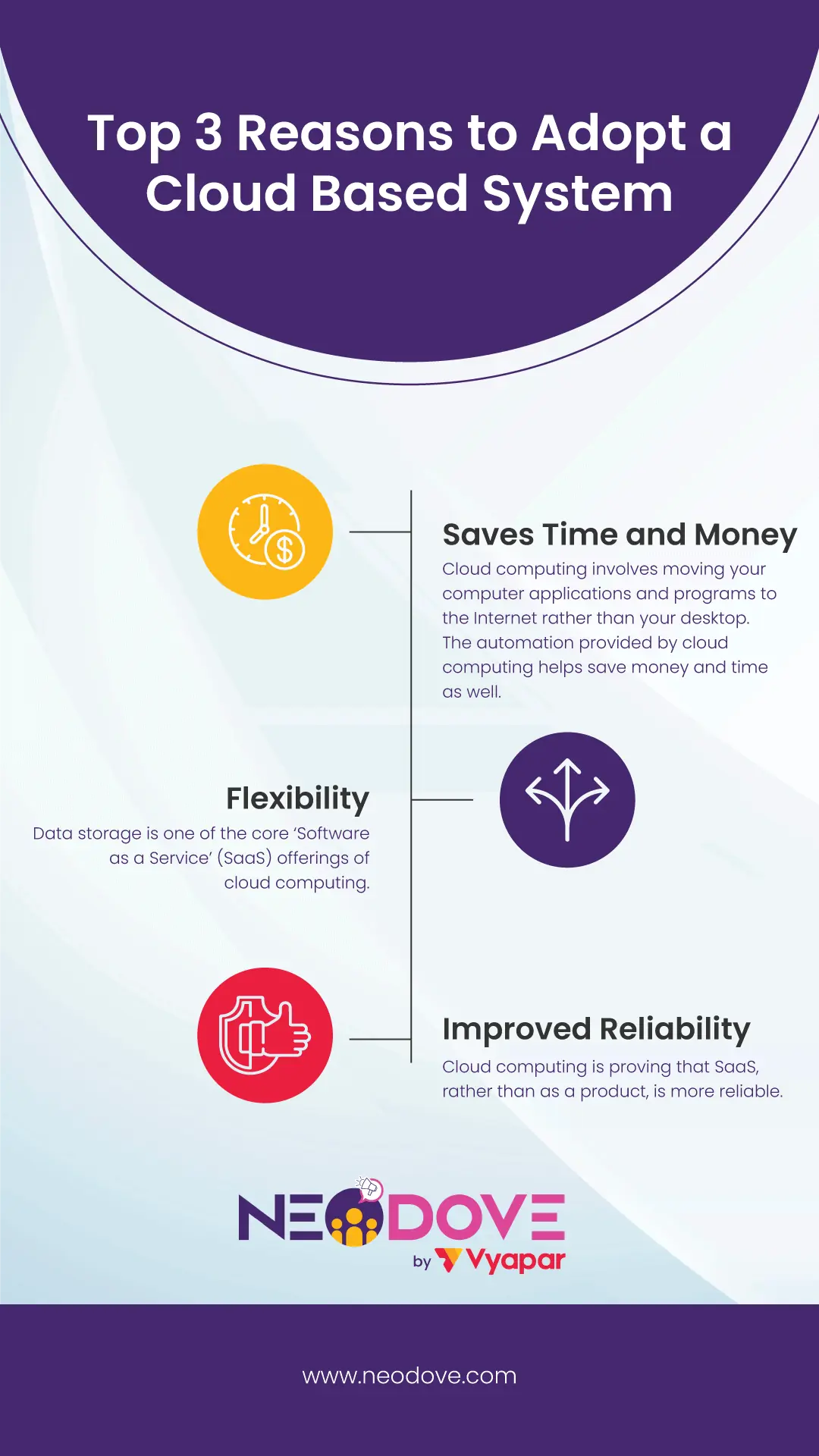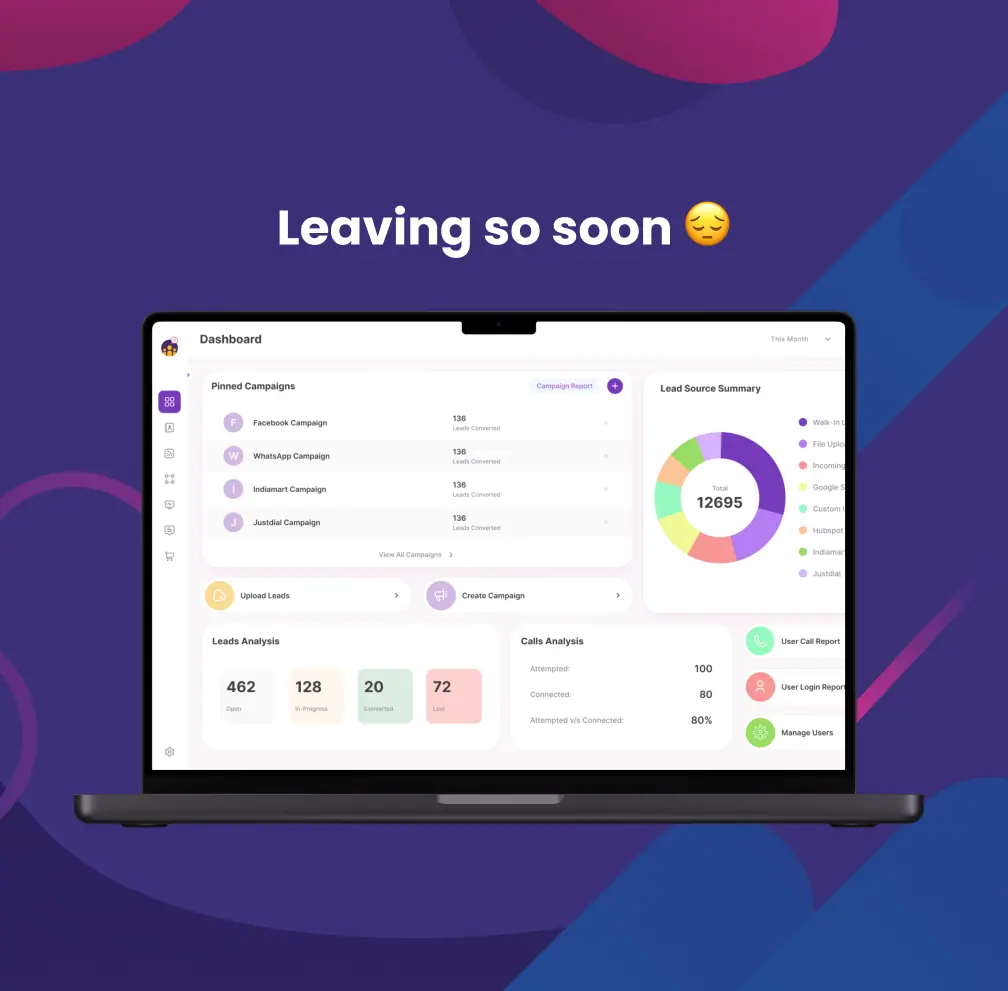FREE GUIDE
Get your copy of the ultimate guide to lead generation through telecalling (scripts included)

Table of Contents
ToggleImagine a world where your business operates seamlessly in the ethereal realms of the cloud. Sounds like a dream, right?
Well, it’s time to wake up and smell the virtual coffee. Why? Well, cloud-based systems are here to make your wildest technological dreams come true! Say goodbye to traditional on-premises setups and hello to the top 7 benefits of a cloud-based system.
From effortless scalability and enhanced data security to flexible accessibility and cost savings, the benefits of cloud based systems are multiple. This revolutionary approach to computing is transforming the way businesses operate. It’s like having a personal genie who can grant your IT wishes with just a few clicks.
And speaking of wishes, here’s a little joke for you: Why did the cloud-based phone take up acting? It wanted to be the star of cloud telephony! Now, let’s embark on an adventure of cloud based systems and discover the endless possibilities it holds.
First off, it’s important to understand what cloud computing is before we delve into its benefits. Cloud computing is a technology that allows users to access data and applications over the internet. They do not need to use and access data from a computer’s hard drive because of cloud computing. This distributed architecture has become increasingly popular. It is seen as a more efficient, scalable, and cost-effective way to store and manage data.
The concept of cloud computing has been around for decades, but it wasn’t until the early 2000s that it became widely adopted. The rise of cloud computing can be attributed to several factors. These factors include the increasing popularity of mobile devices and the need for businesses to store and process large amounts of data.
One of the biggest benefits of cloud computing is the efficiency it offers. With cloud-based systems, all data and applications are accessible from anywhere in the world with an internet connection. This means that teams can work together in real-time, no matter where they are located. Projects can be completed faster, and work can be done at any time of day or night. Cloud-based systems store all data and applications in a centralized location, allowing for easy collaboration across teams and departments.
For example, imagine a company with offices in multiple locations. With a cloud-based system, employees in different offices can work together on a project seamlessly. They can access the same data and applications, and can collaborate in real-time. This can lead to faster project completion times and increased productivity.
Furthermore, cloud-based systems often have features like automated workflows and task management tools. These can further streamline processes and increase efficiency. With these tools, teams can automate repetitive tasks and focus on higher-level work.
Another major advantage of cloud-based systems is their flexibility and scalability. With cloud-based systems, businesses can scale their operations up or down with ease. They can do this without the need to invest in additional hardware or software. This means that businesses can grow at their own pace, and can easily adapt to changes in demand. They need not worry about the cost of hardware or infrastructure.
For example, imagine a business that experiences a sudden spike in demand for their product or service. With a cloud-based system, they can easily scale up their operations to meet the demand. They would not need to invest in additional hardware or infrastructure. This can help businesses take advantage of new opportunities without incurring significant costs.
Additionally, cloud-based systems often have flexible pricing models. These allow businesses to pay for the resources they need, when they need them. This can be especially beneficial for businesses with fluctuating demand, as they can adjust their resource usage accordingly.
Using cloud-based systems can help businesses reduce their overall IT costs. Cloud-based systems eliminate the need for on-premise hardware and infrastructure, as everything is hosted in the cloud. This means that businesses don’t need to invest in expensive hardware. Thus, they can save on the costs associated with maintaining and upgrading that hardware over time.
For example, imagine a business that is just starting out. Instead of investing in expensive hardware and infrastructure, they can use a cloud-based system to get started. They can pay for the resources they need, and can scale up as they grow. This can help businesses save money in the early stages, and can help them avoid costly mistakes.
Furthermore, cloud-based systems often have lower total cost of ownership (TCO) compared to on-premise systems. This is because cloud-based systems require less maintenance and have lower hardware costs over time.
With cloud-based systems, businesses can access data and applications from anywhere in the world. This means teams can work remotely, and employees can be productive even when outside of the office. This flexibility can lead to increased employee satisfaction and retention, as employees have more control over their work-life balance.
Furthermore, cloud-based systems often have mobile apps or web-based interfaces. This makes it easy for employees to access data and applications from their smartphones or tablets. This can be especially useful for employees who are frequently on-the-go.
Cloud-based systems offer improved data security compared to traditional on-premise systems. With cloud-based systems, data is stored in highly secure data centers. They have multiple layers of physical and digital security in place. Additionally, data is regularly backed up and replicated, meaning that any data loss is minimal. This can help businesses protect themselves against cyber threats, data breaches, and loss of data.
For example, imagine a business that stores sensitive customer data. With a cloud-based system, they can be confident that their data is secure. Cloud-based systems often have advanced security features like encryption, multi-factor authentication, and intrusion detection systems. This can help businesses comply with regulations like HIPAA or GDPR, which require strict data security measures.
Maintaining and updating on-premise systems can be expensive and time-consuming. With cloud-based systems, all maintenance and updates are taken care of by the provider. This means businesses don’t need to worry about expensive maintenance costs or manually updating software. This can also help businesses stay up-to-date with the latest security patches and software updates, keeping their data safe and secure.
For example, imagine a business that uses a cloud-based accounting system. With a cloud-based system, they don’t need to worry about manually updating the software or maintaining the hardware. The provider takes care of all of that, ensuring that the system is always up-to-date and secure.
Cloud-based systems are often easy to integrate with existing systems. Thus, cloud- based systems make it easy for businesses to move to the cloud without disrupting their existing IT infrastructure. This means businesses can keep using the apps and software they’re already familiar with, while enjoying the benefits of cloud computing.
For example, imagine a business that uses a cloud-based CRM system. With a cloud-based system, they can easily integrate the CRM with their other systems, like their accounting software or marketing automation platform. This can help businesses streamline their operations and improve efficiency.
Furthermore, cloud-based systems often have APIs or other integration tools. These make it easy for businesses to build custom integrations with their other systems.
While cloud computing offers many benefits, there are also some potential limitations to consider.
For example, businesses that rely heavily on custom software may find that it cannot be easily integrated into a cloud-based system.
Additionally, businesses with poor internet connectivity may experience slower speeds when using cloud-based systems.
However, these limitations can often be addressed through selecting the right cloud-based system and provider, as well as adopting the right migration strategy.
Switching to a cloud-based system can be a cost-effective way to increase efficiency and improve productivity. Cloud-based systems can also help enhance security for businesses of all sizes. With cloud computing, businesses can enjoy all the benefits of traditional on-premise systems. They can do this while saving money and improving their overall IT infrastructure. Consider switching to a cloud-based system today to gain a competitive edge and stay ahead of the curve.
In the realm of business technology, the benefits of a cloud-based system are nothing short of extraordinary.
By harnessing the power of cloud computing, businesses can enjoy multiple benefits. These include scaling effortlessly, secure their data with an ironclad shield, and enjoy unrivaled accessibility. The cost savings are an added bonus, freeing up resources for innovation and growth.
Say goodbye to outdated on-premises infrastructure and embrace the flexibility and agility of the cloud. It’s time to unlock the true potential of your business, skyrocket your productivity, and leave your competitors in the dust. So, why settle for the ordinary when the extraordinary awaits? Embrace cloud-based systems and watch your business soar to new heights. The future is in the clouds!

A cloud-based system is a technology that enables users to access data and applications over the internet, without relying on local hardware or infrastructure. It utilizes remote servers hosted in data centers to store and process data, providing flexible accessibility, scalability, and cost savings compared to traditional on-premise setups.
Examples of cloud-based systems include popular platforms such as Amazon Web Services (AWS), Microsoft Azure, and Google Cloud Platform (GCP). Additionally, cloud-based software applications like Salesforce, Dropbox, and Slack are widely used for customer relationship management (CRM), file storage, and team collaboration, respectively. These examples demonstrate the diverse applications and benefits of cloud-based systems across various industries.




95% business who use NeoDove report 3x more profits!
Happy Customers
107k reviews

These outcomes and beyond can be yours.
Lead Leakage
Increase in call attempts
More Engagement



4.6 Rating
FREE GUIDE
Get your copy of the ultimate guide to lead generation through telecalling (scripts included)